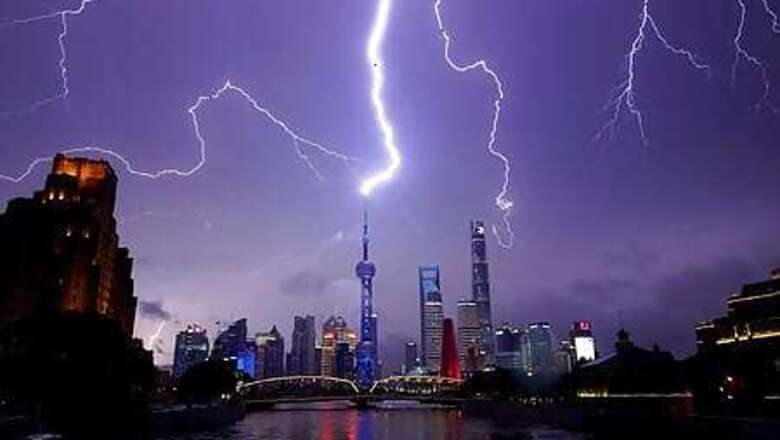
views
HONG KONG: The sharp expansion of U.S. actions to hobble Chinese firms in recent weeks has sparked a rush by global lenders to pare back exposure to the companies and to identify others that may become caught in Washington’s crosshairs, banking sources said.
Semiconductor Manufacturing International Corp (SMIC) became the latest company ensnared in escalating tensions between the world’s two biggest economies, after a U.S. Defense Department official last week said Washington could add China’s biggest chipmaker to its trade blacklist.
Soon after the news broke, bankers at a global lender which has more than $200 million in outstanding credit with SMIC huddled to discuss if there was a way to get the Chinese firm to prepay some of the loans.
“Issuing new credit lines or refinancing the existing debt is out of question, but how do we minimise the risk to the existing portfolio?” a senior banker who took part in the discussions told Reuters.
“It’s bizarre … we are spending more time in managing the risk from these actions and preparing for more sanctions than originating new business,” he said. “You never know where and when will the axe fall next.”
The banker, who is not authorised to speak to the media and declined to be identified, said internal discussions about SMIC’s loans were ongoing and no conclusion had been reached.
SMIC did not immediately respond to a Reuters request for comment on the banker’s remarks.
While bilateral tensions over trade and telecoms giant Huawei Technologies Co Ltd have been cause for concern over the past two years, anxiety at global banks over their Chinese portfolios has ramped up in past months with the advent of the Hong Kong national security law, U.S. orders for China’s ByteDance to divest video app TikTok and now SMIC.
Last month, Washington also blacklisted 24 Chinese companies and targeted individuals it said were part of construction and military actions in the South China Sea, its first such sanctions against Beijing over the disputed strategic waterway.
The risk of actions against more Chinese companies is only growing ahead of the U.S election in November, bankers said, noting President Donald Trump has made national security and his hardline stance against China a key part of his campaign.
Two senior bankers at European lenders said they were taking stock of their banks’ exposure to Chinese technology firms.
In particular, they were looking at clients involved in hardware and semiconductors with business interests in the United States, and were trying to assess the risk of those firms being blacklisted.
Fresh lending to Chinese companies, already under pressure due to worries about the business impact of the coronavirus pandemic, has also slowed.
“Last year, it used to take a few days to do due diligence and write a check to these companies in China. Now it takes weeks,” said a banker at one of the European banks.
“The actions against the Chinese companies will be a big threat from the balance sheet management perspective until the election.”
The foreign bank with the biggest exposure to Chinese companies is HSBC Holdings, followed by Standard Chartered. HSBC is 8th in the mandated arranger loan league table for companies whose ultimate parents are Chinese, while StanChart ranks 11th, according to Refinitiv data.
HSBC and StanChart declined to comment.
Disclaimer: This post has been auto-published from an agency feed without any modifications to the text and has not been reviewed by an editor




















Comments
0 comment